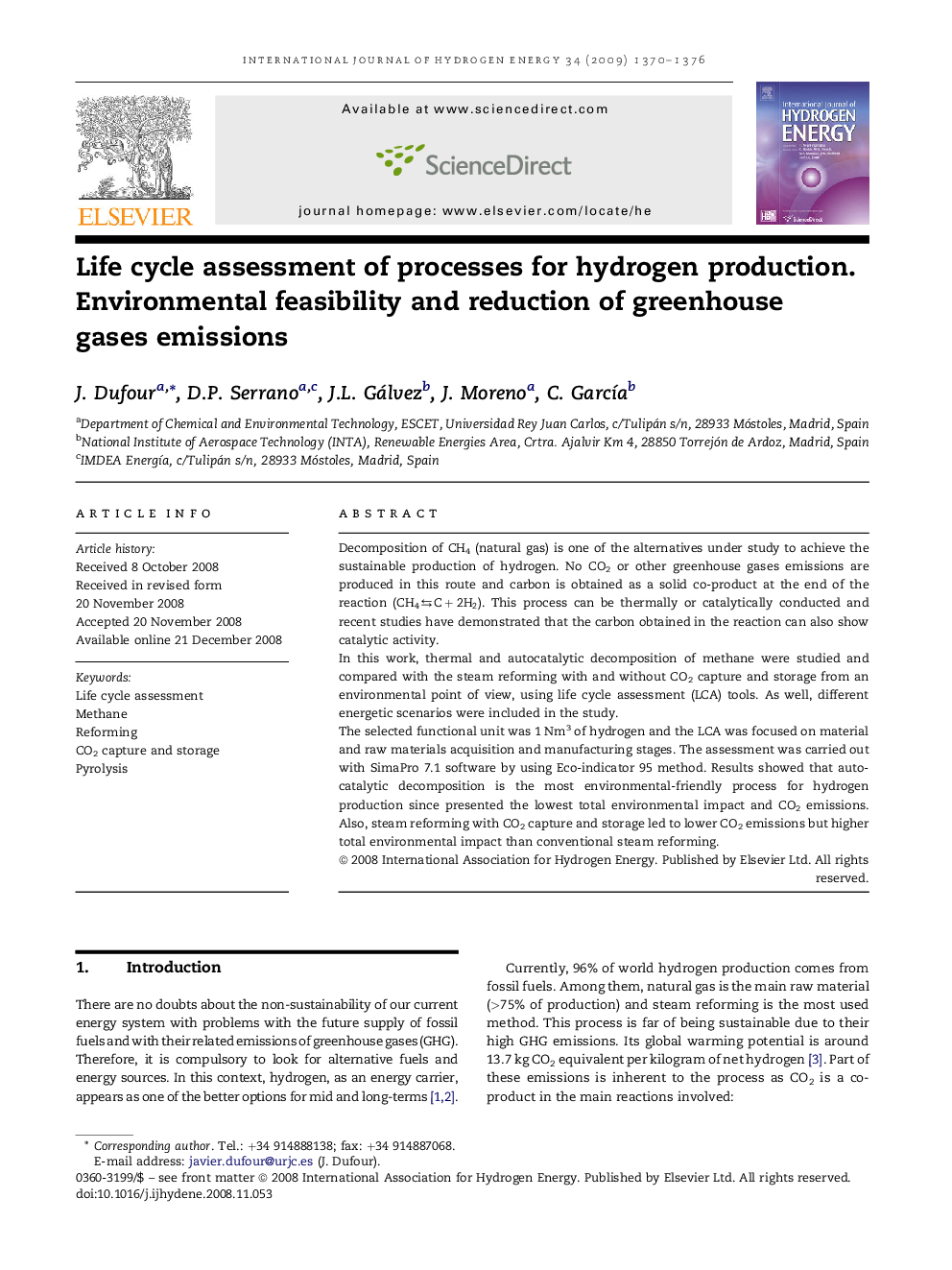| Article ID | Journal | Published Year | Pages | File Type |
|---|---|---|---|---|
| 1283345 | International Journal of Hydrogen Energy | 2009 | 7 Pages |
Decomposition of CH4 (natural gas) is one of the alternatives under study to achieve the sustainable production of hydrogen. No CO2 or other greenhouse gases emissions are produced in this route and carbon is obtained as a solid co-product at the end of the reaction (CH4⇆C+2H2CH4⇆C+2H2). This process can be thermally or catalytically conducted and recent studies have demonstrated that the carbon obtained in the reaction can also show catalytic activity.In this work, thermal and autocatalytic decomposition of methane were studied and compared with the steam reforming with and without CO2 capture and storage from an environmental point of view, using life cycle assessment (LCA) tools. As well, different energetic scenarios were included in the study.The selected functional unit was 1 Nm3 of hydrogen and the LCA was focused on material and raw materials acquisition and manufacturing stages. The assessment was carried out with SimaPro 7.1 software by using Eco-indicator 95 method. Results showed that autocatalytic decomposition is the most environmental-friendly process for hydrogen production since presented the lowest total environmental impact and CO2 emissions. Also, steam reforming with CO2 capture and storage led to lower CO2 emissions but higher total environmental impact than conventional steam reforming.
